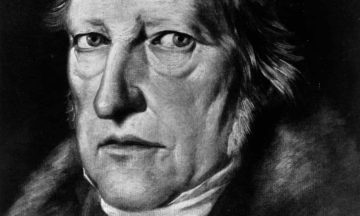 Philip Oltermann in The Guardian:
Philip Oltermann in The Guardian:
In March 1807, aged 36, a towering giant of German philosophy was struggling to come to terms with a career dip.
With an illegitimate son to support and a patrimonial inheritance run dry, George Wilhelm Friedrich Hegel had chucked in an unpaid academic post and accepted a job as an editor at a local newspaper in Bamberg, where he was compiling reports on royal boar hunts. Only a newly acquired coffee percolator offered brief caffeinated thrills.
To make things worse, friends got in touch with feedback on his recently completed 600-page magnus opus, The Phenomenology of the Spirit. They found it hard going.
The man Bertrand Russell later described as “the hardest to understand of the great philosophers” responded with a rare moment of self-doubt. Sometimes, he conceded, it was “easier to be sublimely unintelligible than to be comprehensible in a simple way”.
More here.
